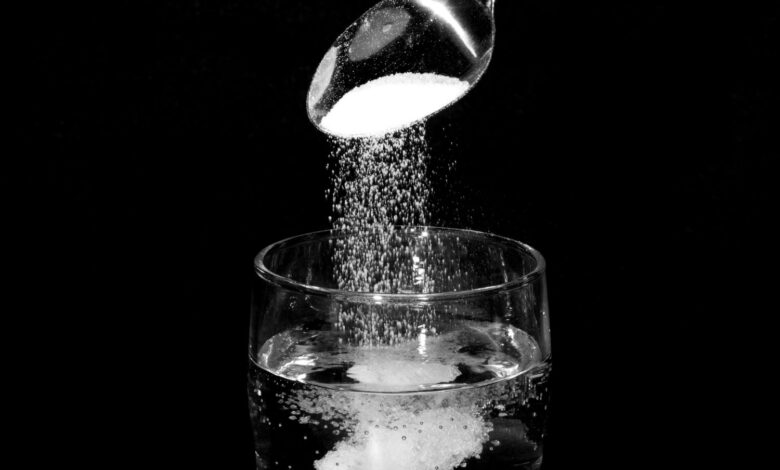Can Salt and Water Prevent Pregnancy?

Can Salt and Water Prevent Pregnancy? Unconventional ways of contraception are becoming more and more popular among women. Particularly among university students in Nigeria, non-emergency contraceptive tablets and mixtures—some of which may be hazardous—are being used.
According to a study done on women over the age of 20, many of them use common medications and beverages as a kind of birth control. Estrogen (a menstruation-inducing medication), lime and potash, Alabukun (a local anesthetic), Gynaecosid (a menstrual cycle-regulating medication), alcoholic beverages, and salt water solution are a few of the materials employed.
How do people use salt and water to prevent pregnancies?
While there are a few other ways to use emergency contraception, the most popular one is to dissolve a teaspoon of salt in a cup of warm water, then push the solution into the vagina with a syringe within ten minutes of having sex. Another way to prevent diluting the effects of salt and water is to wait 30 minutes before peeing or washing. The last approach is to have water and salt after having sex.
Not only does this kind of contraception not offer protection against STDs, but it also does not ensure that pregnancy will not occur.
Is this safe and effective?
Experts continue to disagree on the usefulness of a particular approach. Its efficacy rate, according to research, may range from 50 to 85%, depending on the user’s biology, timing, and appropriate usage.
Also, the majority of people believe that this method is safe because salt and water are easily accessible, cheap, and can be bought without feeling guilty or conscious.
How to stop pregnancy after a day?
Since most contraceptive techniques are only effective when used before or right after unprotected sex, there is no surefire way to prevent pregnancy after a day has elapsed. To assist prevent pregnancy, emergency contraception can be given up to 72 hours after sexual activity, such as the morning-after pill. Speaking with a healthcare professional is crucial in order to go over your options and choose the best course of action.
Future unintended pregnancies can also be avoided by regularly utilizing safe birth control techniques and engaging in safe sexual behavior. Always remember that preventing the necessity for drastic measures is preferable to being proactive and knowledgeable about contraception.
Misconceptions about the salt and water for birth control
Some people think that by changing the pH levels in the vagina, consuming a salt and water mixture can prevent conception. But this approach can be very dangerous as well as completely ineffective. Consuming excessive amounts of salt can cause electrolyte imbalances, dehydration, and even poisoning. Moreover, applying salt water to the vagina might upset the normal bacterial balance, which can result in infections and other issues.
It is critical that people understand the possible risks associated with using salt and water as a form of birth control and instead look for safe and reliable options like condoms, birth control tablets, or other types of contraception that medical professionals have prescribed. It is crucial to prioritize safety and education when it comes to reproductive health.
Some safe and effective methods of birth control
In order to stop ovulation, hormonal birth control methods—such as tablets, patches, and injections—affect a woman’s hormone levels. Condoms and diaphragms are examples of barrier techniques that physically prevent sperm from getting to an egg.
Intrauterine devices (IUDs) and implants are examples of long-acting reversible contraceptives (LARCs), which are quite effective and can last for several years with no upkeep. For those who are positive that they do not wish to have children in the future, sterilization procedures such as vasectomy for men and tubal ligation for women provide permanent contraception. It is crucial to speak with a healthcare professional to choose the appropriate birth control method based on each person’s unique circumstances and preferences.
FAQS
Is it true that salt and water can prevent pregnancy?
The theory that a salt and water mix might prevent pregnancy is unfounded, according to science.
How is salt and water believed to prevent pregnancy?
There are some beliefs that rinsing with a salt and water solution after sexual activity can work as a contraceptive strategy by killing sperm or changing the vagina’s pH. But these assertions lack a solid scientific foundation.
What are some reliable methods for preventing pregnancy?
Condoms, birth control tablets, intrauterine devices (IUDs), contraceptive implants, and contraceptive injections are safe methods of contraception. To find the best approach based on personal health and lifestyle considerations, it’s imperative to speak with a healthcare professional.
Where can I find accurate information about contraception?
Sexual health organisations, family planning clinics, medical professionals, and reliable websites are good sources of accurate information regarding contraception. In order to make well-informed decisions on sexual health and contraception, it is crucial to rely on evidence-based sources.
Conclusion
Although it has been suggested that salt and water could be used as contraceptives, their ability to prevent pregnancy has not been scientifically proven. It is not advised to depend solely on these techniques since they do not provide trustworthy contraception. Seeking advice from medical experts and investigating tried-and-true contraceptive options that are secure, efficient, and customised for each person’s need is crucial.



